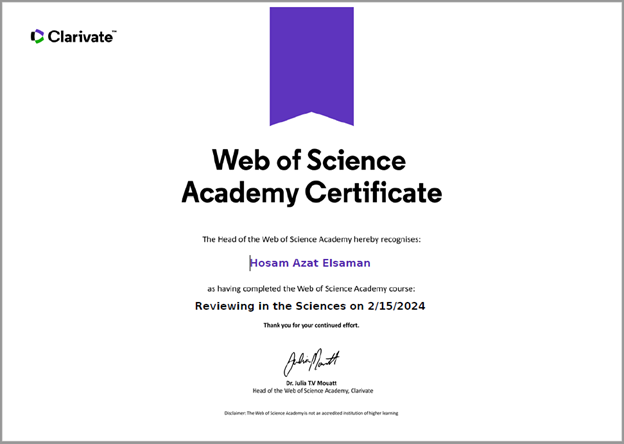The Family Principle in Economy: Understanding the Concept and Practical Challenge
DOI:
https://doi.org/10.15549/jeecar.v9i1.876Keywords:
Economy, Family Principle, Competition, Cooperation, Coopetition, SMEs, CooperativeAbstract
This research aims to delineate how the family principle has been regarded and understood in Indonesia's Economy. Furthermore, it seeks to comprehensively understand the family principle to prevent further misconceptions or multi-interpretations. The method used is the qualitative approach that is based on literary studies. Besides providing the advantage of being exploratory in nature, the approach is suitable for studies in the environment of economic theory as researchers attempt to gain understanding through the thoughts and interpretation building of significant figures in the Indonesian economy. Overall, it is evident that cooperation and competition are the two crucial and equally important elements of the family principle to understand the concept comprehensively. Thus, the research concluded that both concepts had been integrated into the family principle as coopetition, whereas all economic institutions recognized by the constitution simultaneously compete and cooperate.
References
Airasian, P.W, Mills, G. & Gay, L.R. (2012). Educational research: Competencies for analysis and application. USA: Pearson Education, Inc.
Bengtsson, Maria, Jessika Eriksson & Joakim Wincent. (2010). Coopetition dynamics – An Outline for Further Inquiry. Competitiveness Review: An International Business Journal, Vol. 20(2). pp. 194-214. Doi: 10.1108/10595421011029893 DOI: https://doi.org/10.1108/10595421011029893
Bouncken, R. B., Fredrich, V., & Kraus, S. (2019). Configurations of firm-level value capture in coopetition. Long Range Planning. doi:10.1016/j.lrp.2019.02.002 DOI: https://doi.org/10.1016/j.lrp.2019.02.002
Christ, K. L., Burritt, R. L., & Varsei, M. (2017). Coopetition as a Potential Strategy for Corporate Sustainability. Business Strategy and the Environment, 26(7), 1029–1040. doi:10.1002/bse.1967 DOI: https://doi.org/10.1002/bse.1967
Creswell, J. W. (1994). Research design: Qualitative and quantitative approaches. Thousand Oaks, CA: SAGE Publications.
Creswell, J.W. (2003). Research design: Qualitative, quantitative, and mixed methods approaches. (2nd ed.) Thousand Oaks: Sage
Czakon, W., Klimas, P., & Mariani, M. (2020). Behavioral antecedents of coopetition: A synthesis and measurement scale. Long Range Planning, 53(1), 101875. doi:10.1016/j.lrp.2019.03.001 DOI: https://doi.org/10.1016/j.lrp.2019.03.001
De Soto, Hernando, The Mystery of Capital – Rahasia Kejayaan Kapitalisme Barat, Qalam, Yogyakarta, 2006
Hermanto, Asep Bambang. (2018) Politik Hukum dalam Demokrasi Ekonomi Indonesia. Jurnal Selisik 4(1) (2018): Juni p: 4-28
Higgins, Benjamin. (1958). Hatta and Cooperatives: The Middle Way for Indonesia?, Center for International Studies of the Massachusetts Institute of Technology, Massachusetts, 1958
Imms, M. & Ereaut, Gill. (2013). An introduction to qualitative market research. 10.4135/9781849208550.
Limbong, Bernhard, Ekonomi Kerakyatan dan Nasionalisme Ekonomi, Margaretha Pustaka, Jakarta, 2013.
Miao, Z. (2019), "Investigation on human rights ethics in artificial intelligence researches with library literature analysis method", The Electronic Library, 37(5), pp. 914-926. https://doi.org/10.1108/EL-04-2019-0089 DOI: https://doi.org/10.1108/EL-04-2019-0089
Mubyarto, Indonesian economy (Gagasan dan Kemungkinan), LP3ES, Jakarta, 1987
Nitisastro, W., ISEAS, The Indonesian Development Experience (A Collection of Writings and Speeches of Widjojo Nitisastro), ISEAS Publishing, Singapore, 2011 DOI: https://doi.org/10.1355/9789814311830
Singarimbun, Masri dan Sofian Effendi. 1989. Metode Penelitian Survei. Jakarta. LP3ES
Soesatro, Hadi (ed.), ISEI, Pemikiran dan Permasalahan Ekonomi di Indonesia dalam Setengah Abad Terakhir (Buku 1, 1945-1959, Membangun Ekonomi Nasional), Kanisius, Yogyakarta, 2005
Soesatro, Hadi (ed.), ISEI, Pemikiran dan Permasalahan Ekonomi di Indonesia dalam Setengah Abad Terakhir (Buku 2, 1959-1966, Ekonomi Terpimpin), Kanisius, Yogyakarta, 2005
Soesatro, Hadi (ed.), ISEI, Pemikiran dan Permasalahan Ekonomi di Indonesia dalam Setengah Abad Terakhir (Buku 3, 1966-1982, Paruh Pertama Ekonomi Orde Baru), Kanisius, Yogyakarta, 2005
Soesatro, Hadi (ed.), ISEI, Pemikiran dan Permasalahan Ekonomi di Indonesia dalam Setengah Abad Terakhir (Buku 4, 1992-1997, Deregulasi dan Liberalisasi Ekonomi), Kanisius, Yogyakarta, 2005
Soesatro, Hadi (ed.), ISEI, Pemikiran dan Permasalahan Ekonomi di Indonesia dalam Setengah Abad Terakhir (Buku 5, 1997-2005, Krisis dan Pemulihan Ekonomi), Kanisius, Yogyakarta, 2005
Subandi, DR, M.M., Ekonomi Koperasi (Teori dan Praktik), Alfabeta, Bandung, 2013
Sukardi (2012). Metodologi Penelitian Pendidikan. Jakarta: Bumi Aksara
Swasono, Sri-Edi & Ridjal F., Mohammad Hatta, Beberapa Pokok Pikiran, UI-Press, Jakarta, 1992
Swasono, Sri-Edi, Prof. Dr., Pembangunan Berwawasan Sejarah: Kedaulatan Rakyat, Demokrasi Ekonomi, dan Demokrasi Politik, UI Press, Jakarta, 1990
Undang-undang (UU) No. 09 Tahun 1969 Tentang Bentuk-bentuk Badan Usaha Negara
Undang-undang (UU) No. 25 Tahun 1992 Tentang Koperasi
Walley, Keith. (2007). Coopetition: An Introduction to the Subject and an Agenda for Research. International Studies of Management & Organization, 37(2), 11-31. Doi: 10.2753/IMO0020-8825370201 DOI: https://doi.org/10.2753/IMO0020-8825370201
Wie, Thee Kian, Indonesia’s Economy since Independence, ISEAS Publishing, Singapore 2012 DOI: https://doi.org/10.1355/9789814379540
Zhu, Y., Lynette Wang, V., Wang, Y.J. and Nastos, J. (2020), "Business-to-business referral as digital coopetition strategy: Insights from an industry-wise digital business network", European Journal of Marketing, 54(6), pp. 1181-1203. https://doi.org/10.1108/EJM-01-2019-0011. DOI: https://doi.org/10.1108/EJM-01-2019-0011
Downloads
Published
How to Cite
Issue
Section
License
The JEECAR journal allows the author(s) to hold the copyright and publishing rights of their own manuscript without restrictions.
This journal applies the Creative Attribution Common License to works we publish, and allows reuse and remixing of its content, in accordance with a CC-BY 4.0 license.
Authors are free to: Share — copy and redistribute the material in any medium or format and Adapt — remix, transform, and build upon the material for any purpose, even commercially.
Under the following terms: Attribution — You must give appropriate credit, provide a link to the license, and indicate if changes were made. You may do so in any reasonable manner, but not in any way that suggests the licensor endorses you or your use.
No additional restrictions — The author may not apply legal terms or technological measures that legally restrict others from doing anything the license permits.
The JEECAR Journal is committed to the editorial principles of all aspects of publication ethics and publication malpractice as assigned by the Committee on Public Ethics.












